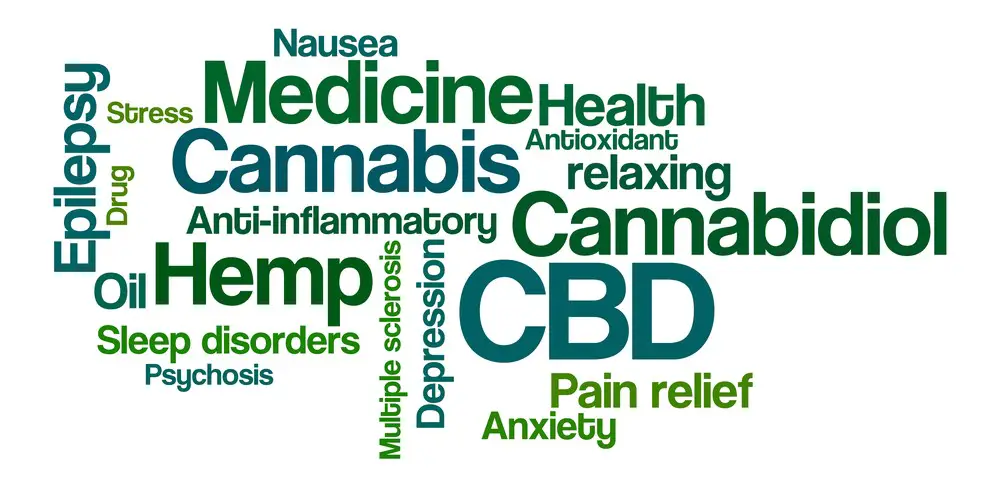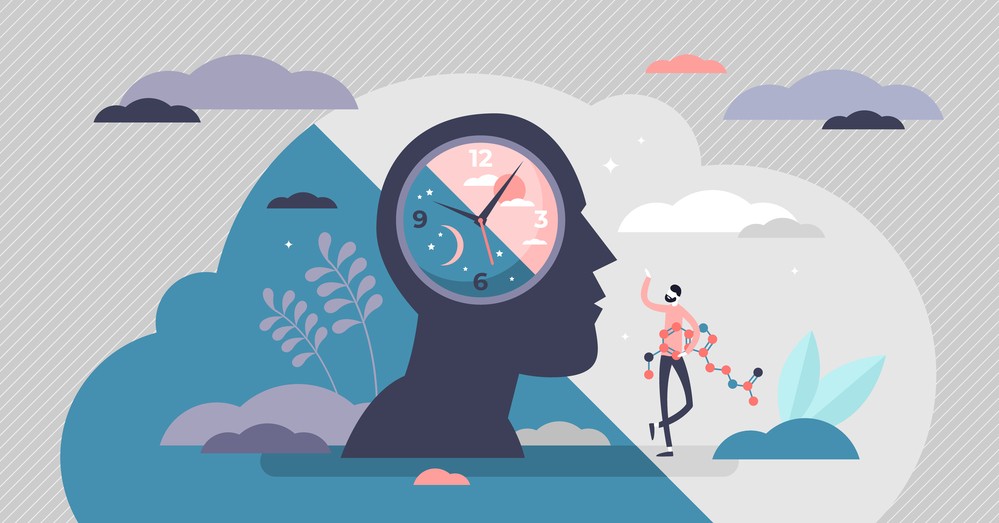As a BetterHelp affiliate, we receive compensation from BetterHelp if you purchase products or services through the links provided
In recent years, the quest for a good night’s sleep has led many people to explore natural sleep aids. Two popular options have emerged as frontrunners: cannabidiol (CBD) and melatonin. Both substances have gained attention for their potential to improve sleep quality, but the question remains: which is more effective? This article aims to compare and contrast their benefits, risks, and mechanisms of action to help discern the most suitable choice for each individual.
CBD, derived from the cannabis plant, has gained significant interest for its potential therapeutic effects without inducing the psychoactive “high” associated with marijuana. Among its numerous health claims, research suggests that CBD may be useful in alleviating anxiety and promoting relaxation, which may contribute to improved sleep. Conversely, melatonin is a hormone produced naturally by the human body, playing a crucial role in regulating the sleep-wake cycle. Melatonin supplements have long been utilized as a sleep aid to help combat insomnia and jet lag.
Though both CBD and melatonin offer promising benefits for sleep, it’s essential to consider individual factors such as overall health, lifestyle, and the specific sleep issues experienced. As studies on these substances expand, a more comprehensive understanding of their comparative effectiveness will emerge, ultimately helping individuals make informed sleep aid choices.
CBD and Melatonin for Sleep

An Overview of CBD
Cannabidiol (CBD) is a natural compound derived from the cannabis plant but doesn’t possess psychoactive effects like THC. CBD is known to have several potential health benefits, including relief from anxiety, pain, and inflammation. It has been observed that CBD might impact sleep by interacting with the endocannabinoid system, which helps regulate various bodily functions such as sleep-wake cycles. Some studies suggest that CBD may improve sleep quality and quantity. However, more research is necessary to draw definitive conclusions.
An Overview of Melatonin

Melatonin is a hormone produced by the pineal gland responsible for regulating the circadian rhythm, our internal 24-hour clock. Circadian rhythms influence several bodily functions, including sleep. Melatonin production typically increases in darkness and decreases in light, signaling to the body that it’s time to sleep. People experiencing jet lag, shift work, or insomnia might use melatonin supplements to adjust their sleep patterns. Research indicates that melatonin can effectively reduce the time it takes to fall asleep and promote regular sleep patterns, but its long-term effectiveness requires further investigation.
How CBD and Melatonin Work
The Endocannabinoid System and CBD
The endocannabinoid system (ECS) is a complex cell-signaling system within the human body that maintains physiological homeostasis. The ECS consists of endocannabinoids, receptors, and enzymes that regulate various processes in the body, including sleep, mood, and pain. CBD, a derivative of the cannabis plant, interacts with the ECS to produce various therapeutic effects.
Phytocannabinoids, such as CBD, interact with ECS receptors to modulate the release of neurotransmitters, thus impacting the body’s response to pain, inflammation, and sleep disorders. CBD, in particular, binds primarily to CB1 and CB2 receptors, which are present in the brain and immune system.
Some ways that CBD can help improve sleep include:
- Reducing anxiety and stress: CBD can help ease the symptoms of anxiety and stress, which contribute to sleep disturbances.
- Alleviating pain: CBD’s anti-inflammatory and analgesic effects can help reduce chronic pain, promoting better sleep quality.
- Regulating sleep-wake cycles: CBD can increase overall sleep time and improve the symptoms of REM sleep behavior disorder and excessive daytime sleepiness.
Melatonin and Sleep Regulation

Melatonin is a naturally occurring hormone produced by the pineal gland in the brain. It plays a significant role in regulating sleep-wake cycles. Melatonin levels typically rise in the evening and decrease in the morning, helping the body maintain its circadian rhythm.
Some ways that melatonin can help improve sleep are:
- Resetting the sleep-wake cycle: Melatonin supplements can effectively address sleep disorders caused by jet lag or shift work by helping reset the circadian rhythm.
- Reducing insomnia: Melatonin can help individuals fall asleep more quickly and stay asleep longer.
- Managing sleep disorders in children: Children with attention-deficit/hyperactivity disorder (ADHD) or autism spectrum disorder (ASD) may benefit from melatonin supplementation to improve their sleep quality.
When comparing CBD and melatonin, both have different mechanisms for promoting sleep. CBD interacts with the endocannabinoid system, while melatonin directly influences the sleep-wake cycle. The choice between CBD and melatonin depends on the individual’s specific sleep issues and preferences. It is always essential to consult with a healthcare professional before starting any supplement for sleep support.
Comparing CBD and Melatonin
Benefits of CBD for Sleep
Cannabidiol (CBD) is a naturally occurring compound in the cannabis plant. It is non-psychoactive, unlike its counterpart, tetrahydrocannabinol (THC). CBD is extracted from hemp plants and has been credited with numerous therapeutic effects, including improving sleep.
CBD interacts with the body’s endocannabinoid system, which regulates various physiological processes, including sleep. Some studies suggest that CBD may help with sleep by:
- Reducing anxiety and stress, which are common causes of sleep disturbances
- Decreasing pain, which can disrupt sleep
- Regulating the sleep-wake cycle
It is important to note that research on CBD and sleep is still in its early stages, and more studies are needed to establish its effectiveness.
Benefits of Melatonin for Sleep
Melatonin is a hormone produced by the pineal gland in the brain. It is responsible for regulating sleep and wakefulness. Melatonin supplements are widely used to combat sleep disorders and insomnia. Some of the benefits of melatonin for sleep include:
- Promoting sleep onset, making it easier to fall asleep
- Improving sleep quality, helping you stay asleep throughout the night
- Reducing jet lag and adjusting the sleep schedule during shift work
Melatonin is generally considered safe and effective for short-term use. However, long-term use is not well studied and further research is needed.
In conclusion, CBD and melatonin have their own unique set of benefits for sleep. Each person’s individual needs and preferences, as well as any pre-existing health conditions, should be considered before deciding on which option to pursue. Additionally, consulting with a healthcare professional before starting any new supplement regimen is always important.
Side Effects and Risks
Potential Side Effects of CBD
CBD is generally considered safe. However, there can be some potential side effects. These may include:
- Nausea: Some individuals may experience nausea after consuming CBD products.
- Dizziness: Dizziness can occur, particularly if CBD causes a drop in blood pressure.
- Dehydration: CBD may lead to dehydration, as it can inhibit saliva production, leading to dry mouth.
It is important to note that CBD can interact with certain medications, such as blood thinners. This is due to the effect of CBD on liver enzymes responsible for metabolizing drugs. It is always advised to consult with a healthcare professional before starting any new supplement or medication, including CBD.
Potential Side Effects of Melatonin
Melatonin is a hormone naturally produced by the body, but it can have potential side effects when taken as a supplement. Some possible side effects include:
- Dizziness: Melatonin may cause dizziness in some individuals, particularly when starting the supplement.
- Nausea: Nausea may be experienced by some users after taking melatonin.
- Headaches: Headaches can be a side effect for a small percentage of melatonin users.
Although uncommon, melatonin may interact with certain medications, such as blood thinners or antihypertensive drugs. It is important to consult a healthcare provider before beginning any new supplement or medication to avoid adverse effects or interactions.
Research and Studies
CBD and Sleep Quality
According to research, CBD has shown the potential to improve sleep quality. Some studies suggest that CBD may positively impact sleep by reducing anxiety and promoting relaxation. For example, in a study conducted in 2019, participants reported improvements in their sleep scores after taking CBD. However, research on CBD’s effectiveness for sleep is still in its early stages, and more extensive studies are needed to confirm these findings.
It is essential to note that the FDA does not currently regulate CBD products, and the quality, dosage, and concentrations of CBD products available may vary significantly. As a result, caution should be taken when using CBD for sleep until more conclusive research is conducted.
Melatonin and Sleep Quality
Melatonin is a well-researched supplement that is commonly used to aid sleep. It is a naturally occurring hormone that regulates sleep-wake cycles. Several studies have demonstrated the effectiveness of melatonin in improving sleep quality, especially in individuals with insomnia and other sleep disorders.
- A 2013 meta-analysis of 19 studies found that melatonin significantly improves sleep latency (the time it takes to fall asleep) and overall sleep quality.
- In another study, melatonin supplementation benefited individuals with delayed sleep phase syndrome and other circadian rhythm disorders.
It is worth mentioning that the FDA regulates melatonin, and is available as an over-the-counter supplement. This means that the quality and potency of melatonin products are more strictly controlled than CBD products. However, consulting with a healthcare professional before starting any sleep aid or supplement is always recommended.
Natural Sleep Aids
Lifestyle Changes
Improving sleep hygiene is vital for a better night’s rest. This can be achieved by maintaining a consistent sleep schedule, creating a relaxing bedtime routine, and ensuring the sleep environment is comfortable and conducive to good quality sleep. Exercise significantly promotes healthy sleep patterns, as it helps reduce stress and anxiety while boosting mood and energy levels. However, avoiding rigorous physical activity close to bedtime is essential, as it may have the opposite effect on sleep.
Incorporating relaxation techniques into the daily routine can also help improve sleep. Deep breathing exercises, mindfulness meditation, and progressive muscle relaxation reduce stress and promote relaxation before bedtime.
Herbal Supplements
Natural sleep aids can also include herbal supplements that have been shown to help with sleep. Among these, valerian is a popular choice, known for its potential to improve sleep quality and reduce the time it takes to fall asleep. The recommended dosage varies, and it is essential to consult a healthcare professional before using any herbal supplement, including valerian.
Another option is CBD, which may have sleep-promoting effects through its interaction with the body’s endocannabinoid system. Melatonin is another naturally occurring substance that potentially aids in sleep regulation. It is vital to remember that the efficacy of these substances may vary from person to person, and consulting with a healthcare professional is always recommended.
In conclusion, various lifestyle changes and herbal supplements can improve sleep quality. However, it is essential to consult a healthcare professional before significantly changing one’s routine or incorporating supplements into a wellness plan.
Choosing the Right Supplement
CBD Products
CBD, or cannabidiol, is a compound derived from the hemp plant. It has become a natural remedy for anxiety, insomnia, and pain management. CBD products come in various forms, such as oils, capsules, gummies, and topical creams. Given its potential to provide relaxation and promote sleep, people with difficulty sleeping may consider trying CBD supplements.
When choosing a CBD product for sleep, consider the following factors:
- Quality: Look for products with third-party lab testing to ensure purity and potency.
- Dosage: Start with a low dose and gradually increase it to find the optimal personal amount.
- Full-spectrum vs. Isolate: Full-spectrum products contain other cannabinoids and terpenes that may enhance the effects of CBD, while isolates contain only CBD.
Melatonin Products
Melatonin is a hormone produced by the body that regulates sleep-wake cycles. It is commonly used as a supplement to address insomnia, fatigue, and disrupted sleep associated with shift work or jet lag. Melatonin products are available in various forms, such as tablets, capsules, and liquid.
When choosing a melatonin product for sleep, keep these aspects in mind:
- Dosage: Follow the recommended dosing instructions and, if needed, consult a doctor to determine the appropriate dose.
- Immediate Release vs. Extended Release: Depending on the nature of the sleep issue, either immediate-release or extended-release formulations may be suitable.
- Natural vs. Synthetic: Some products contain synthetic melatonin, while others use natural sources like tart cherries.
Ultimately, the decision between CBD and melatonin supplements depends on individual factors such as the cause of sleep issues, reactions to the substances, and personal preferences. It is essential to consult a healthcare professional before starting any supplement regimen, as they can provide personalized guidance on appropriate use, dosing, and potential interactions with other medications.
Legal Status and Regulation
CBD Regulations
In the United States, the legal status of CBD underwent a major change with the passage of the 2018 Farm Bill. This bill removed hemp-derived CBD (with less than 0.3% THC) from the Controlled Substances Act, classifying it as an industrial crop. However, CBD derived from marijuana plants (with more than 0.3% THC) remains illegal under federal law. Some states, though, have regulations and may permit the use of CBD within their borders.
Despite the 2018 Farm Bill’s impact, the FDA still regulates CBD products – especially those advertised for therapeutic or medical purposes. The FDA evaluates and approves CBD-based medications, ensuring they meet safety, effectiveness, and quality standards. Currently, the only FDA-approved CBD medication is Epidiolex, used for treating severe childhood epilepsy.
Melatonin Regulations
Melatonin, a hormone naturally produced by the body, is considered a dietary supplement in the United States. The FDA does not strictly regulate supplements like prescription drugs, but they have guidelines for ensuring safe manufacturing practices and accurate labeling.
The Centers for Disease Control and Prevention (CDC) advises consumers to use melatonin supplements cautiously since they may cause side effects or interact with other medications. Additionally, melatonin dosage, quality, and purity can vary between brands and products.
CBD regulations vary based on their source, with hemp-derived CBD products legalized under the 2018 Farm Bill but still regulated by the FDA. Melatonin, considered a dietary supplement, receives less strict oversight but is still subject to FDA guidelines and CDC recommendations for consumer safety.
Conclusion
Both compounds offer unique benefits in the battle of CBD vs. Melatonin for sleep. CBD, a cannabinoid found in the cannabis plant, targets the endocannabinoid system, which may help stabilize sleep patterns and alleviate anxiety. On the other hand, Melatonin is a naturally occurring hormone that regulates sleep-wake cycles and assists with falling asleep.
- CBD Advantages:
- May improve sleep quality
- Can reduce anxiety and stress
- Non-habit-forming
- Minimal side effects
- Melatonin Advantages:
- Regulates sleep-wake cycle
- Non-addictive
- Can help with jet lag
- Widely available
That said, choosing CBD and Melatonin depends on individual preference and the underlying cause of sleep disturbances. CBD might be a more suitable option if anxiety or chronic pain contributes to difficulty sleeping. However, Melatonin may be more effective if the primary issue is related to the sleep-wake cycle or jet lag.
It’s essential to consult with a healthcare professional before starting with either supplement, as specific dosages and potential interactions with other medications must be considered. In conclusion, CBD and Melatonin have unique benefits for those struggling with sleep issues, and each supplement’s effectiveness will depend on the individual’s circumstances and needs.
FAQs
This site contains affiliate links to products. We will receive a commission for purchases made through these links.



